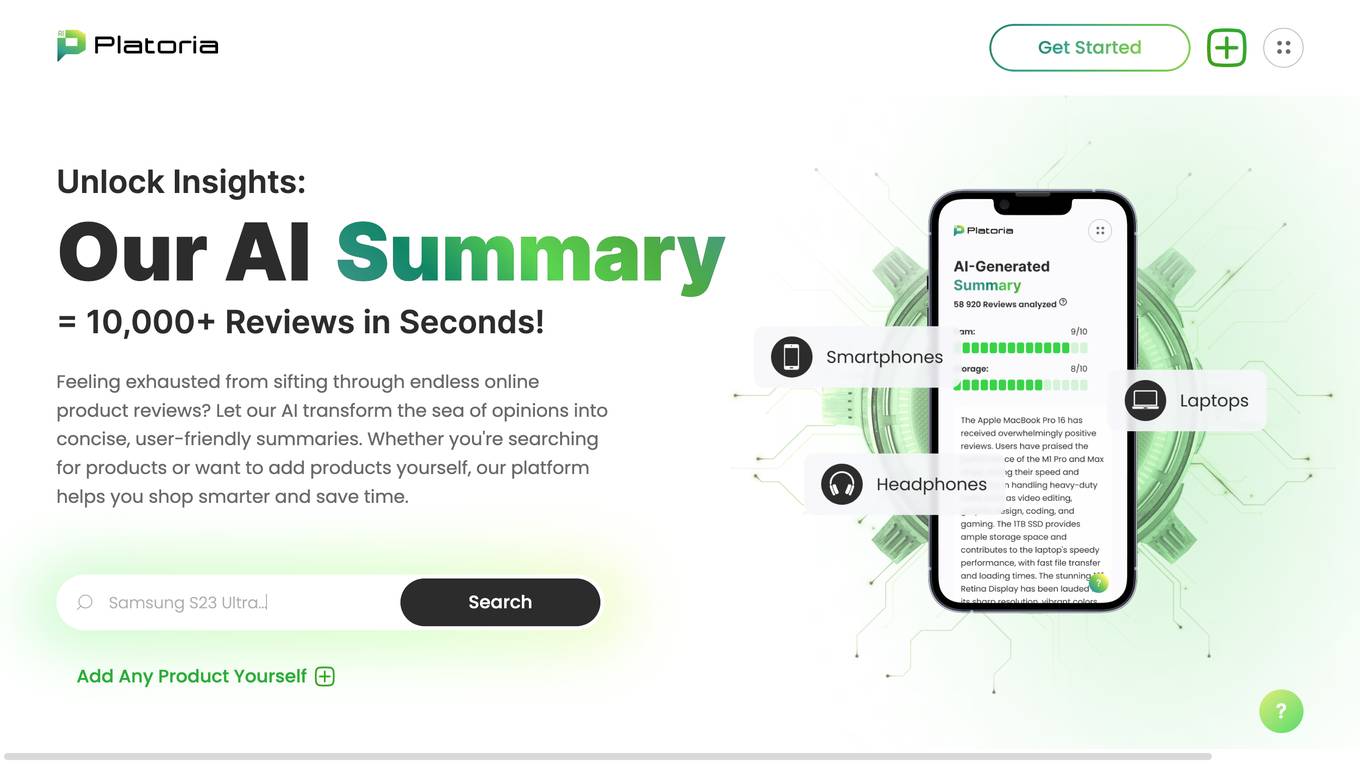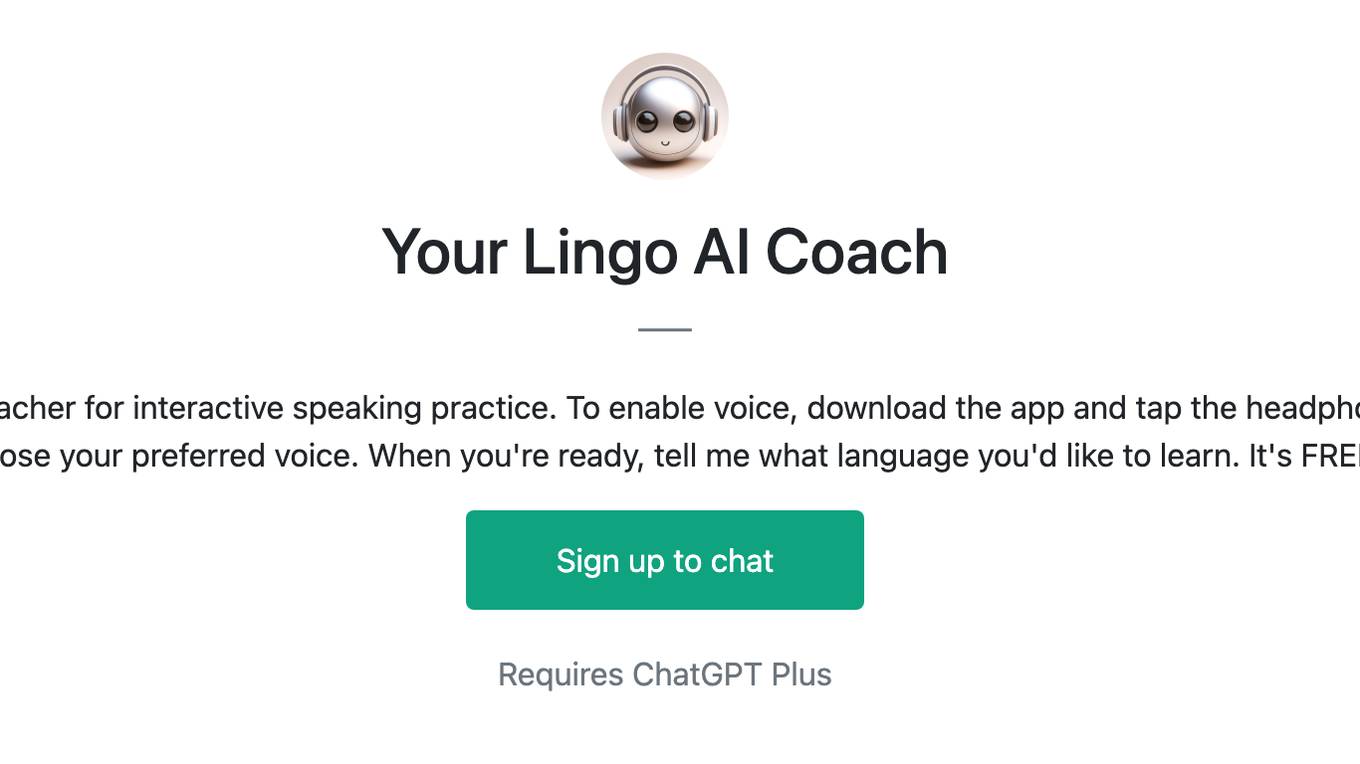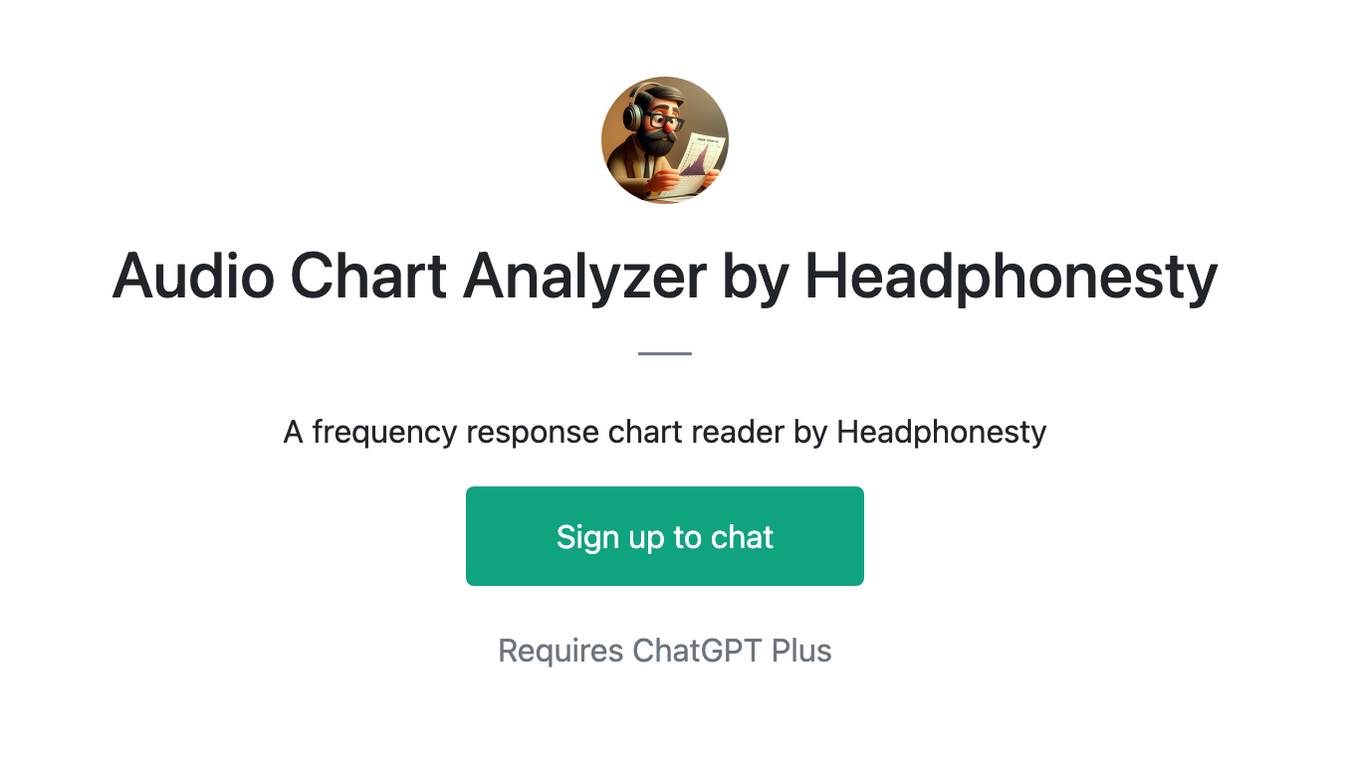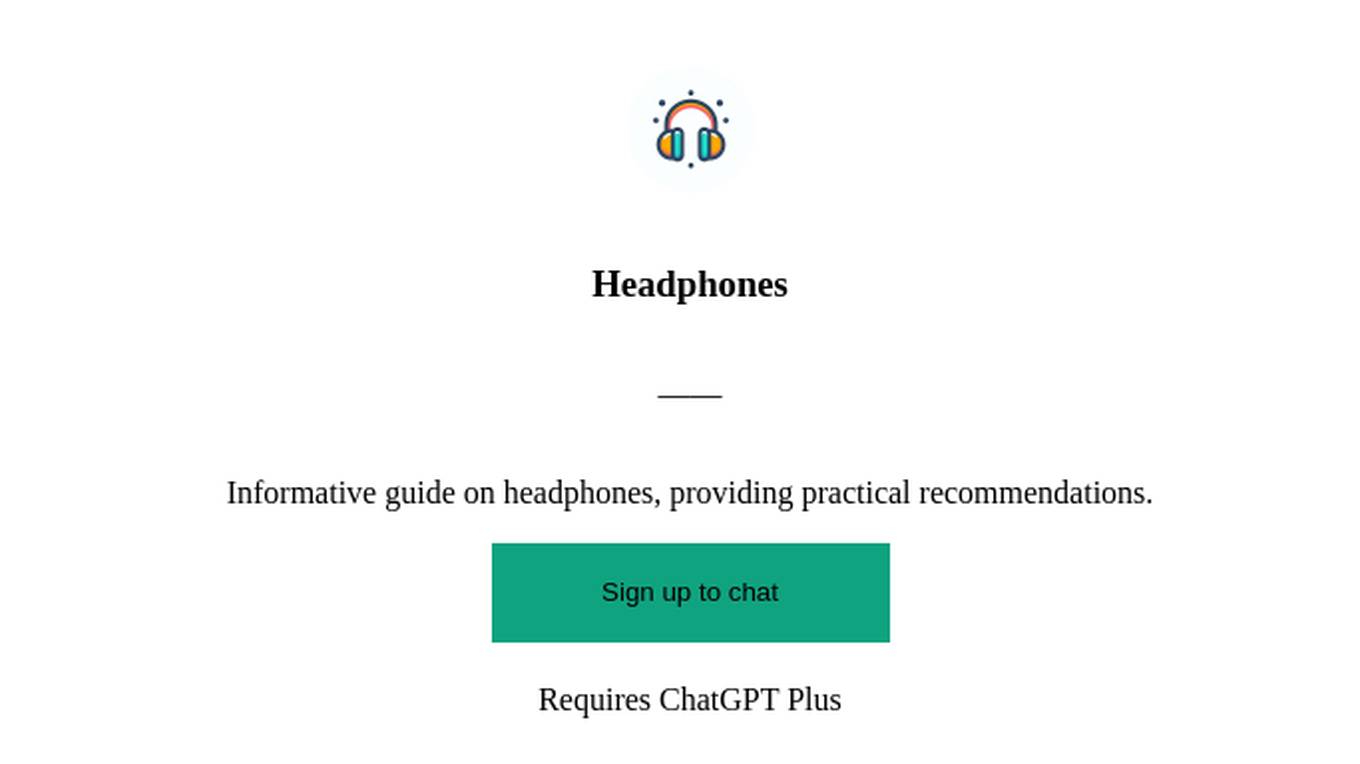Best AI tools for< Headphone Reviewer >
Infographic
1 - AI tool Sites

Platoria
Platoria is an AI application that provides AI review summaries for products based on thousands of reviews from vendors worldwide. It condenses reviews into easily digestible summaries, offering actionable insights and boosting customer trust and sales for Shopify stores. Platoria's lightweight and snappy design works with all themes without slowing down the site, making it a valuable tool for e-commerce businesses looking to enhance their product reviews and increase sales.
0 - Open Source Tools
4 - OpenAI Gpts

Your Lingo AI Coach
Welcome! I'm a voice-focused language teacher for interactive speaking practice. To enable voice, download the app and tap the headphone button next to my chat window. Then choose your preferred voice. When you're ready, tell me what language you'd like to learn. It's FREE!


